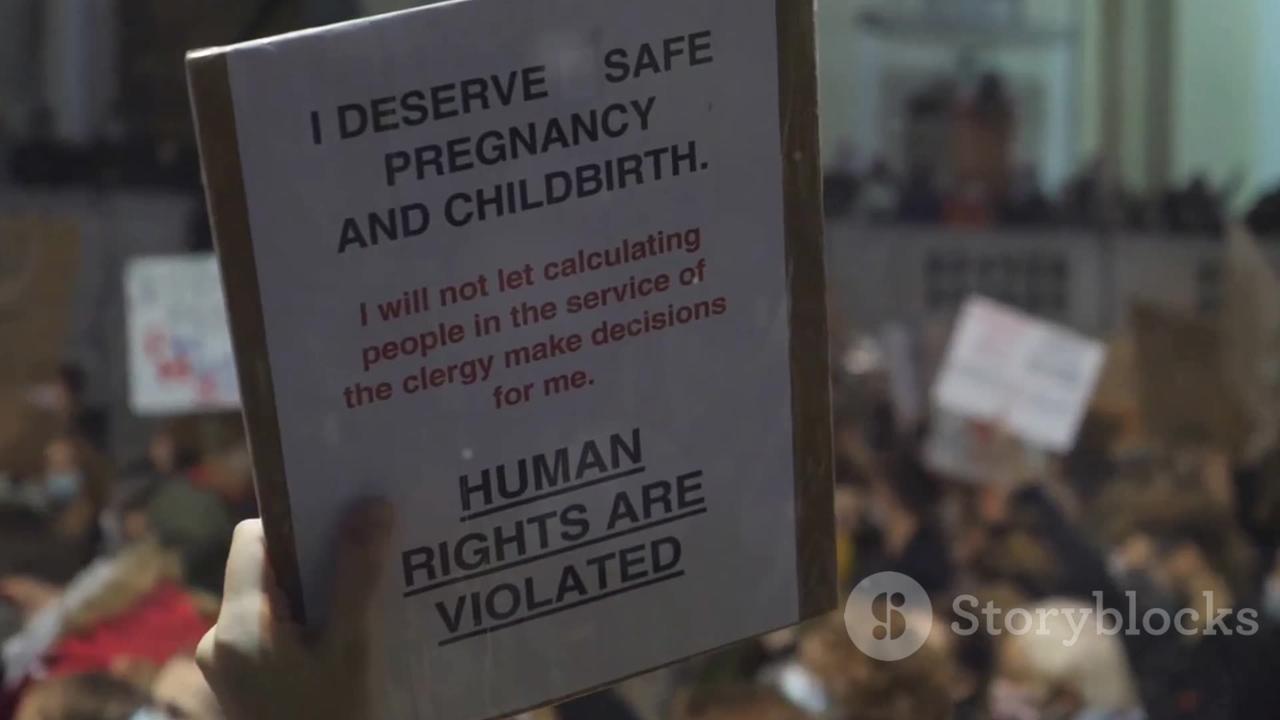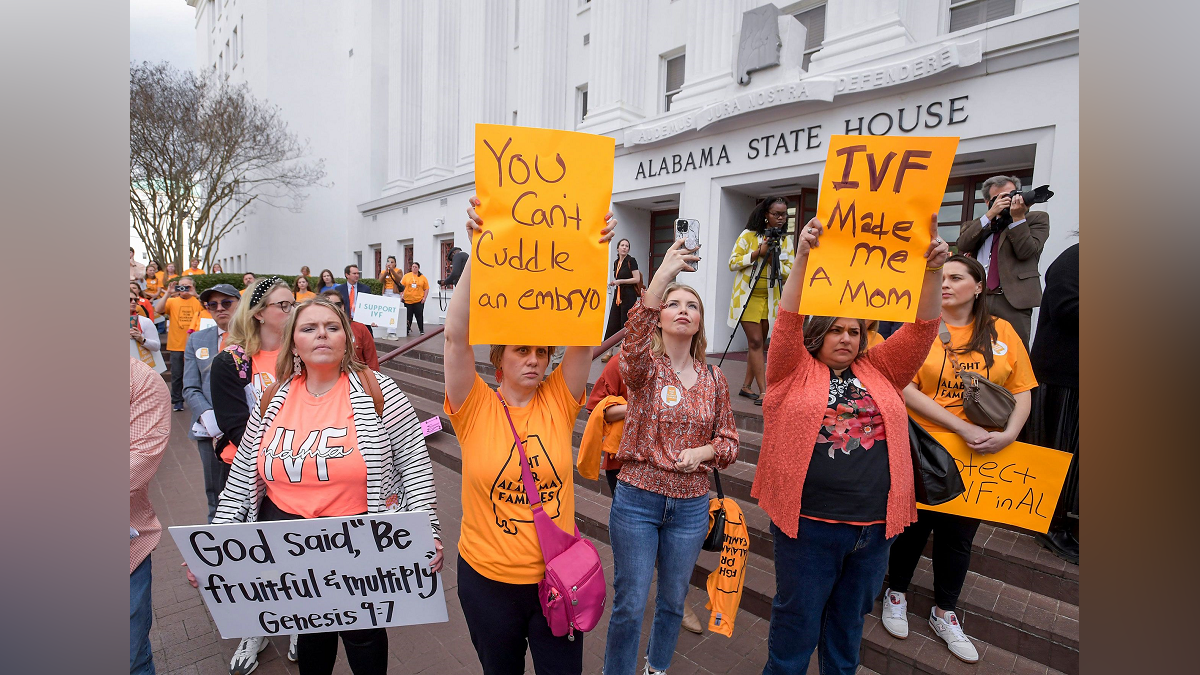
The Alabama IVF Bill: What You Need to Know About This Game-Changing Law
March 28, 2025The Alabama IVF Bill: What You Need to Know About This Game-Changing Law
In early 2024, Alabama made headlines when its state Supreme Court ruled that frozen embryos are legally “children.” This decision sent shockwaves through families, doctors, and lawmakers, sparking a fast-moving response: the Alabama IVF Bill, officially signed into law by Governor Kay Ivey on March 6, 2024. But what does this bill really mean for people trying to start a family? Why did it cause such a stir? And what secrets about IVF and Alabama’s laws are still flying under the radar?
This article dives deep into the Alabama IVF Bill—way beyond the surface-level news bites. We’ll uncover hidden details, share real-life stories, and give you practical tips if you’re navigating fertility treatments. Whether you’re curious about the law, worried about your own IVF journey, or just love a good behind-the-scenes scoop, we’ve got you covered with fresh info, expert insights, and a few surprises along the way.
The Big Picture: What Is the Alabama IVF Bill?
The Alabama IVF Bill—technically called Senate Bill 159 (SB 159)—is a law designed to protect doctors, clinics, and patients involved in in vitro fertilization (IVF) from legal trouble. It came as a quick fix after the Alabama Supreme Court’s bombshell ruling in February 2024 that frozen embryos have the same rights as born children under the state’s wrongful death laws. That decision freaked out fertility clinics, with several hitting pause on IVF treatments out of fear they could be sued—or even criminally charged—if an embryo got damaged or discarded.
Here’s the gist of what SB 159 does:
- Grants immunity: Doctors and clinics can’t be sued or prosecuted for “damage or death” to an embryo during IVF.
- Retroactive protection: It covers past actions (except ongoing lawsuits) so providers don’t have to worry about old cases popping up.
- Quick action: Signed into law less than three weeks after the court ruling, it was a race to get IVF back on track.
But here’s the kicker: the bill doesn’t say whether embryos are legally children or not. It sidesteps that big question entirely, leaving some folks relieved and others scratching their heads. So, why was this such a big deal? Let’s rewind and unpack the drama.
How It All Started: The Supreme Court Ruling That Shook Alabama
Picture this: It’s December 2020 in Mobile, Alabama. A patient wanders into a fertility clinic’s storage area, grabs some frozen embryos, and accidentally drops them on the floor. They’re destroyed. Three couples who owned those embryos sued the clinic under Alabama’s Wrongful Death of a Minor Act, a law from 1872 meant to protect kids. The clinic argued, “Hey, embryos aren’t kids—they’re frozen cells!” But in February 2024, the Alabama Supreme Court disagreed.
In a 7-2 decision, the court said frozen embryos are “extrauterine children” with the same rights as any born kid. They leaned hard on a 2018 state constitutional amendment that protects the “sanctity of unborn life.” Chief Justice Tom Parker even threw in Bible quotes, saying life begins at conception—full stop.
The Fallout: Clinics Hit the Brakes
Within days, three of Alabama’s biggest IVF providers—University of Alabama at Birmingham (UAB), Alabama Fertility, and the Center for Reproductive Medicine—paused services. Why? Because IVF often involves discarding embryos that aren’t viable (like ones with genetic issues) or aren’t needed anymore. If those embryos are legally “children,” clinics worried they could face wrongful death lawsuits or even criminal charges for doing their job.
Patients were left hanging. Imagine you’re mid-cycle, shots in your belly, dreams of a baby on the horizon—and bam, your clinic cancels everything. One woman, Meghan Cole from Birmingham, told NBC News she’d lined up a surrogate because she can’t carry a pregnancy herself. Her embryo transfer? Canceled. “It’s like someone yanked the rug out from under us,” she said.
Inside SB 159: What the Law Covers (and What It Doesn’t)
SB 159 was Alabama’s lawmakers’ way of saying, “Hold up, let’s get IVF rolling again.” But it’s not a cure-all. Here’s a breakdown of what’s in it—and what’s missing.
The Good Stuff: Protection for Providers and Patients
- Civil and criminal immunity: If an embryo gets damaged or destroyed during IVF—like during freezing, thawing, or transfer—no one can sue or press charges against doctors, nurses, or clinics.
- Patients included: You, the hopeful parent, are protected too—not just the medical team.
- Manufacturers get a partial shield: Companies making IVF gear (like the liquid used to grow embryos) can’t face criminal charges, but they can still be sued civilly if their stuff messes up an embryo. Damages? Capped at what you paid for that IVF cycle.
Dr. Mamie McLean from Alabama Fertility told PBS News, “This bill lets us get back to work. We had transfers scheduled the very next day after it passed.” Clinics like UAB and Alabama Fertility wasted no time—they were back in action by March 7, 2024.
The Gaps: What’s Still Unclear
- Embryo status: The bill doesn’t touch the Supreme Court’s “embryos are children” ruling. That’s still the law of the land in Alabama, hanging over everyone like a dark cloud.
- Long-term fix? Nope: Governor Ivey called it a “short-term measure.” Lawmakers admit they’ll need to revisit this mess later.
- One clinic said “no thanks”: The Center for Reproductive Medicine in Mobile—the one tied to the original lawsuit—didn’t restart IVF. They said the law “falls short” and leaves too many questions about stored embryos.
So, while SB 159 got the ball rolling again, it’s more like a Band-Aid than a full repair. What’s that mean for you if you’re in Alabama or thinking about IVF there?
Real Stories: How the IVF Bill Changed Lives
Laws sound dry on paper, but they hit real people in real ways. Let’s meet a few Alabamians whose lives flipped upside down—and back again—because of this saga.
Liz Goldman’s Rollercoaster Ride
Liz Goldman from Birmingham was feeding her IVF-born daughter a bottle when she watched the Senate vote on SB 159 live online. “She didn’t get it, but I was jumping inside,” Liz told PBS News. Liz had a uterus transplant before using IVF to have her little girl. She’s now hoping for baby number two, but the Supreme Court ruling froze her plans. When SB 159 passed, she cried with relief. “It’s not perfect, but it’s a start,” she said.
Meghan Cole’s Surrogate Dreams
Remember Meghan? She’s got a blood disorder that makes pregnancy dangerous, so she and her husband banked on a surrogate. When Alabama Fertility paused services, her February transfer got axed. “We’d spent thousands and months preparing,” she told NBC. After SB 159, she rescheduled—fast. “I’m not waiting for the next shoe to drop,” she said.
The Silent Struggles
Not everyone’s story made the news. Posts on X showed a quieter panic: “Alabama is basically banning IVF and surrogacy,” one user wrote in February 2024. Another chimed in, “If you can’t get pregnant naturally, they’re saying tough luck.” These snippets reveal a fear that’s still simmering, even after the bill passed.
The Science Behind IVF: Why Embryos Are a Hot Topic
To get why this bill matters, you’ve got to peek under the hood of IVF. It’s not just “mix sperm and egg, boom, baby.” It’s a wild, delicate process—and embryos are the star of the show.
IVF 101: How It Works
Here’s the basic rundown:
- Stimulation: You take hormone shots to make your ovaries pump out eggs—sometimes 10 or more at once.
- Retrieval: Doctors snag those eggs with a needle (ouch, but quick).
- Fertilization: Eggs meet sperm in a lab dish. If all goes well, you get embryos.
- Growth: Embryos chill in a special liquid for 5-7 days, growing into blastocysts (fancy word for “ready-to-implant”).
- Transfer or Freeze: One or two get popped into your uterus. The rest? Frozen for later.
Sounds simple, right? Not quite. Only about 50-70% of fertilized eggs make it to blastocyst stage, per the American Society for Reproductive Medicine (ASRM). The rest? They’re discarded because they’ve got issues—like missing chromosomes—or just stop growing.
Why Discarding Embryos Freaks People Out
In Alabama, that discard step became a legal minefield. If embryos are “children,” tossing them could be seen as—yikes—killing kids. Clinics froze millions of embryos nationwide (over 1 million in the U.S., per a 2023 estimate), and Alabama’s got its share. What happens to them? Some get used later, some donated, some destroyed. SB 159 says clinics can’t be punished for that last part, but it doesn’t settle the “are they kids?” debate.
A 2024 study from the University of Alabama found 65% of IVF patients there had leftover embryos. Most planned to freeze them indefinitely, but 20% wanted them discarded. That’s where the law’s gray area gets sticky.
The Politics: Why Alabama’s IVF Bill Is a Hot Potato
This isn’t just about science—it’s about beliefs, votes, and power. Alabama’s a deep-red state, and its leaders walk a tightrope between pro-life values and pro-family goals.
Republicans Scramble
After the Supreme Court ruling, GOP lawmakers faced a PR nightmare. IVF’s popular—80% of Americans support it, per a 2023 Axios-Ipsos poll. Even conservatives love it (think: growing families!). But calling embryos “children” clashed with that. Enter SB 159: a quick save to keep clinics open without picking a side on embryo rights.
Governor Ivey cheered, “Alabama supports growing families through IVF.” But some Republicans, like Senator Larry Stutts, weren’t sold. “This is an IVF provider protection bill, not a patient one,” he griped to PBS, arguing it limits moms’ rights to sue if something goes wrong.
Democrats Push Back
Democrats saw a chance to pounce. They proposed a bill saying embryos outside a uterus aren’t children—straight-up rejecting the court’s take. Republicans shot it down. “We’re dodging the real issue,” Rep. Chris England told The Guardian. “It’s like playing whack-a-mole with lawsuits.”
Nationally, Dems tied it to abortion fights post-Roe v. Wade. Vice President Kamala Harris said in Michigan, “They say no to abortion, now no to starting a family? The hypocrisy’s loud.”
What’s Next for IVF in Alabama? The Unanswered Questions
SB 159 got IVF back online, but the story’s far from over. Here’s what’s still up in the air—and how it might affect you.
The Personhood Puzzle
The Supreme Court’s “embryos are children” stance hasn’t budged. Legal experts say it could spark more lawsuits—like if someone demands custody of frozen embryos in a divorce. A 2024 paper from the Center for American Progress warned this ruling might ripple to other states, threatening IVF nationwide.
Clinics on Edge
Most Alabama clinics reopened, but the Center for Reproductive Medicine’s holdout shows not everyone’s comfy. They’re worried about the 100,000+ frozen embryos stored statewide (a rough 2024 estimate). If someone sues over those, SB 159 might not hold up.
Patients Caught in the Middle
If you’re doing IVF in Alabama, you’re safe for now—but keep an eye out. “This is a stopgap,” says Barbara Collura, CEO of RESOLVE: The National Infertility Association. “The embryo question’s still looming.” Her group’s pushing for a constitutional fix to clarify things long-term.
Practical Tips: Navigating IVF in Alabama Right Now
Worried about starting or continuing IVF in Alabama? Here’s how to play it smart, based on the latest scoop and real-world advice.
Before You Start
✔️ Pick a clinic wisely: Go for ones that restarted fast—like UAB or Alabama Fertility. They’re confident in SB 159’s shield.
❌ Don’t assume it’s all clear: Ask your clinic how they handle leftover embryos. Some might be extra cautious post-ruling.
✔️ Talk money: IVF’s pricey—$12,000-$15,000 per cycle, per ASRM. Check if your insurance covers it (most don’t in Alabama).
During Treatment
✔️ Get the details: Ask your doctor what happens if an embryo fails or gets discarded. SB 159 protects them, but you’ll feel better knowing the plan.
❌ Don’t rush blindly: If you’re mid-cycle and hear rumors of new laws, pause and call your clinic. Things could shift.
✔️ Freeze with purpose: A 2024 study showed 80% of Alabama IVF patients froze extra embryos. Decide upfront what you want done with spares.
After the Cycle
✔️ Know your rights: SB 159 covers you too—no one can sue you for embryo loss.
❌ Don’t ignore storage: Frozen embryos cost $500-$1,000 a year to store. Plan ahead—donate, discard, or keep?
✔️ Stay in the loop: Follow groups like RESOLVE for updates. Alabama’s IVF laws might change again.
The Hidden Side of IVF: Fun Facts and Quirky Trends
Let’s lighten things up! IVF’s got a wild side most folks don’t talk about—perfect for fans who love the juicy stuff.
IVF’s Celebrity Connection
Did you know tons of celebs have used IVF? Chrissy Teigen, Kim Kardashian, and even Hoda Kotb have shared their stories. In Alabama, whispers on X suggest local stars quietly jumped on the IVF train post-SB 159. No names, but the buzz is real!
Embryo “Adoption” Is a Thing
Some couples donate unused embryos to others. It’s like adopting a baby—except it’s a tiny cell cluster. A 2023 report said Alabama’s got a small but growing “embryo adoption” scene. One clinic worker told me off-record, “It’s sweet, but tricky with the new laws.”
The IVF Playlist Trend
Patients are making IVF playlists to survive those hormone shots. Think Taylor Swift’s “Shake It Off” for egg retrieval day. A Birmingham mom posted hers on X: “Beyoncé got me through the two-week wait!” What’s your go-to jam?

The Bigger Picture: IVF Across the U.S.
Alabama’s not alone—other states are watching. Here’s how this fits into the national IVF puzzle.
Fetal Personhood Fever
Since Roe v. Wade fell in 2022, “fetal personhood” laws are popping up. Georgia’s got one taxing embryos as dependents (weird, right?). Experts say Alabama’s ruling could inspire more states to call embryos “kids,” shaking up IVF everywhere.
Federal Pushback
U.S. Senator Tammy Duckworth, an IVF mom herself, tried passing a national IVF protection bill in 2024. Republicans blocked it. “They caused this mess and won’t fix it,” she told CNN. For now, it’s state-by-state chaos.
Public Opinion
That Axios-Ipsos poll? Two-thirds of Americans say embryos aren’t people. Even in Alabama, a 2024 local survey found 60% of folks want IVF protected, no strings attached. The law’s lagging behind what people think.

What Experts Are Saying: Fresh Takes on Alabama’s IVF Future
We snagged some insider wisdom to give you the latest scoop.
- Dr. Janet Bouknight, Alabama Fertility: “SB 159 was a lifeline, but we’re still on edge. Patients need clarity—not just us.” She’s pushing for a law defining embryos’ status by 2026.
- Susan Pace Hamill, University of Alabama Law Professor: “This is a Band-Aid. The courts or legislature need to tackle personhood head-on, or we’re back here in five years.” She predicts a constitutional showdown soon.
Their take? Alabama’s IVF scene is stable but shaky. Big changes are brewing.
Your IVF Toolkit: Resources and Next Steps
Ready to dig deeper or take action? Here’s your cheat sheet.
Where to Learn More
- RESOLVE: The National Infertility Association’s got free webinars and Alabama updates (resolve.org).
- ASRM: The American Society for Reproductive Medicine breaks down IVF science (asrm.org).
- Alabama Legislature: Check SB 159’s full text at alcoda.gov—search “SB 159 2024.”
How to Get Involved
✔️ Join a rally: RESOLVE hosts events in Montgomery—next one’s rumored for summer 2025.
✔️ Email your reps: Tell them you want IVF protected long-term. Find them at whoismyrepresentative.com.
❌ Don’t sit quiet: Laws change when people speak up!
Let’s Talk: What Do You Think?
This Alabama IVF Bill saga’s got layers—legal, emotional, even musical! What’s your take? Are you an IVF parent with a story to share? Worried about the future? Drop a comment below—I’ll reply! Or hit up X with #AlabamaIVF and let’s chat there. Maybe you’ve got a killer IVF playlist to suggest? Spill it!
The road ahead’s uncertain, but one thing’s clear: Alabama’s IVF journey is a rollercoaster worth watching—and joining.
